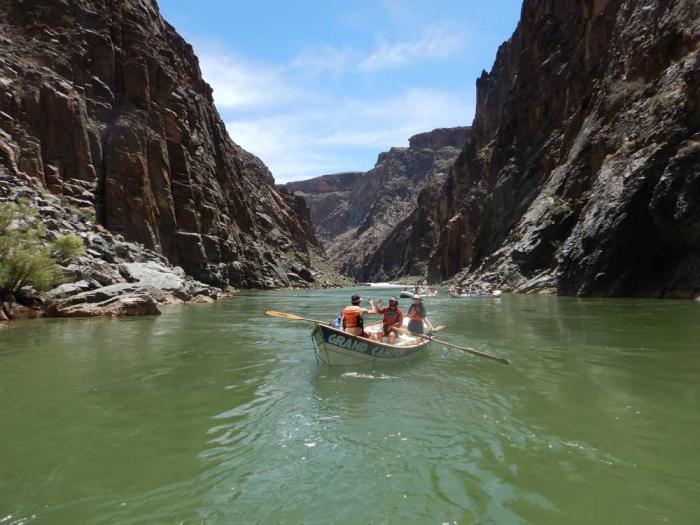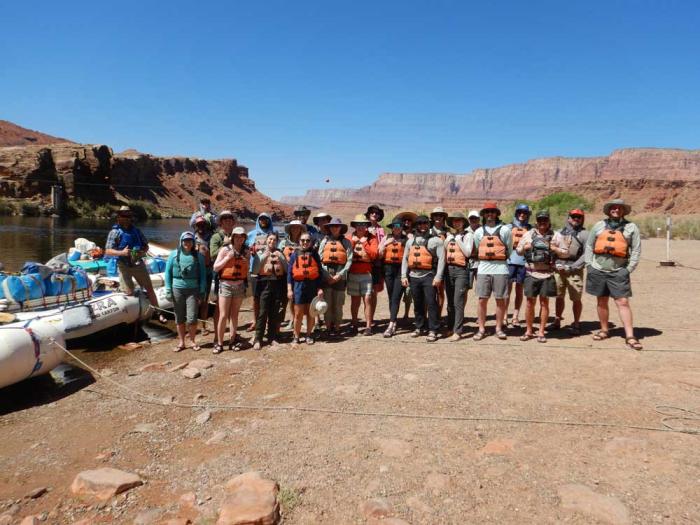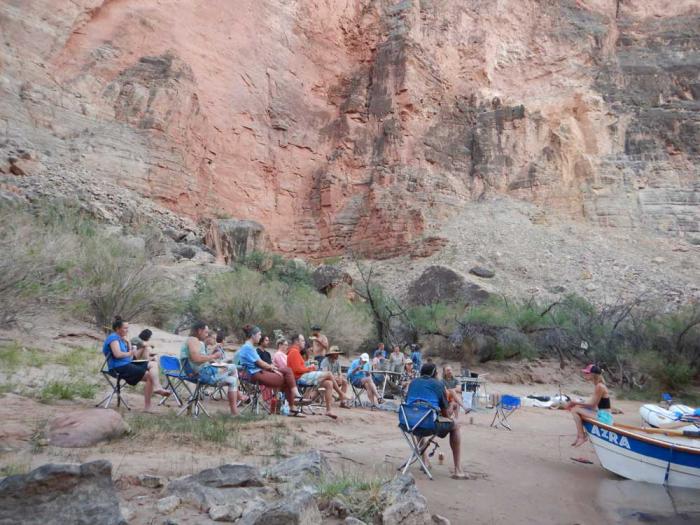Confronting the Colorado River crisis up close, in person
The crisis on the Colorado River has been documented time and time again — a river ravaged by decades of drought, no longer yielding enough water to support the communities that rely on it.
But that extent of crisis becomes much more powerful when you see it for yourself.
“It was the most formative experience of my legal career,” said Kate Bosh, a water law student who recently completed a 14-day, 226-mile trip across the length of the Grand Canyon on the Colorado River.
Bosh recently completed her second year of law school at the University of Colorado Boulder.
As an undergraduate at the University of Miami, she developed an interest in water. Florida certainly has its share of water issues, and Bosh began to see a path forward for her studies.
“I became more interested in the human impacts on our water supply,” Bosh said. “Water is interconnected to every environmental, economic and social issue. And what we do now can have an impact for future generations.”
Learn about Denver Water’s connection to the Colorado River.
After taking a year to travel, Bosh landed in Boulder for law school at CU. She says it’s the first place that truly felt like home. And she says that made her focus on water much clearer.
“Western water law fascinated me,” Bosh said. “The framework governing interstate water allocation presents big legal questions that need to be reckoned with. I knew that’s what I wanted to study.”
This spring, she took a seminar called “The Law of the River.” The discussion-based class focused on the Colorado River Compact of 1922 and the effect that agreement still has on the seven states in the Colorado River basin.
The most intriguing element of the class? A 14-day rafting trip down the Colorado to see firsthand the problems Bosh had read so much about.
With the help of a sponsorship from Denver Water to pay for the trip, Bosh was ready for the experience of her young life.
Denver Water gets 50% of its water supply from the Colorado and is deeply involved in helping find solutions to the crisis on the Colorado. Educating future generations about the Colorado River is vitally important.
Did you get this from a friend? Sign up for our free, weekly TAP emails with stories and tips about water.
And the trip was certainly educational for Bosh.
“It was an amazing connection to the river,” she said.
“We were on what the guides called ‘river time.’ We got up in the morning when the sun rose, and we went to bed at night when the sun set. No phones, no electronics devices. Nothing. We just experienced the river and saw firsthand the scarcity of water that we studied all semester.”
Each day Bosh, 14 other students and their guides would travel the river, carefully observing and documenting the path it had carved through the Grand Canyon through the centuries. They saw the “bathtub ring” markings on the canyon walls, showing where water levels once were. Guides pointed to large boulders that decades ago were covered in water, and now are nearly completely exposed.
Each night students would share aspects of the Colorado River and water law that they had been researching — each individual searching for thoughtful solutions to complex problems.
And there, amid a crisis 100 years in the making, Bosh found a reason for hope.
“Studying water law in the west is not an optimistic field,” Bosh said. “Clearly, we have problems we have to deal with, and people rarely seem to agree on solutions.
“But I’m optimistic still because I saw so much passion and so much creative thinking about what is possible. My classmates on this trip will be my colleagues in the years ahead, and I believe we are truly capable of figuring out these complex issues.”
For her part going forward, Bosh wants to focus on the Native American tribes and how she feels they have been underrepresented in negotiations around the Colorado River Compact.
She also hopes more students will have the opportunity, and the funding, to take future trips like this.
“Seeing truly is believing,” she says. “You have to see the river and the canyon for yourself to appreciate the history and the majesty, as well as the scarcity. And hopefully that will inspire others to act, like it did for me.”




